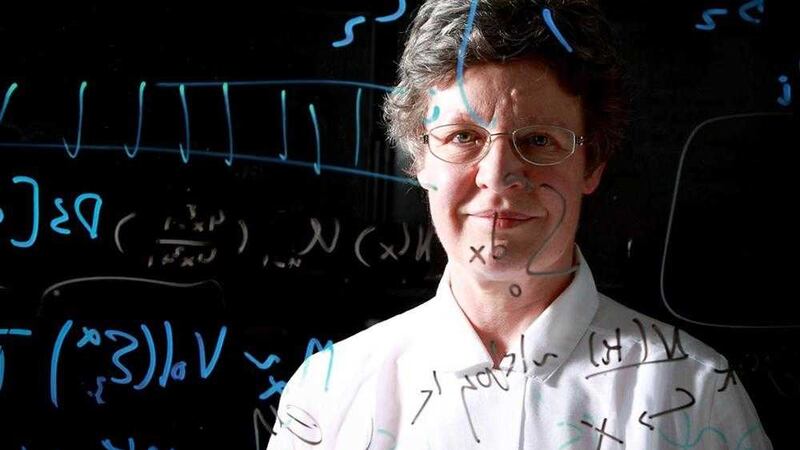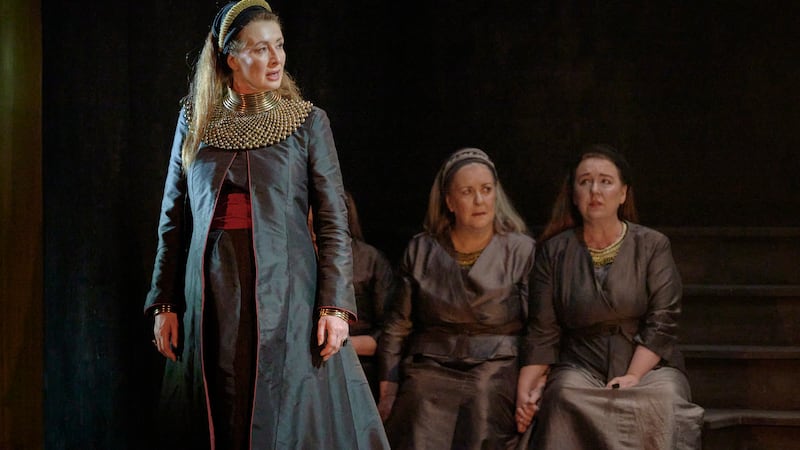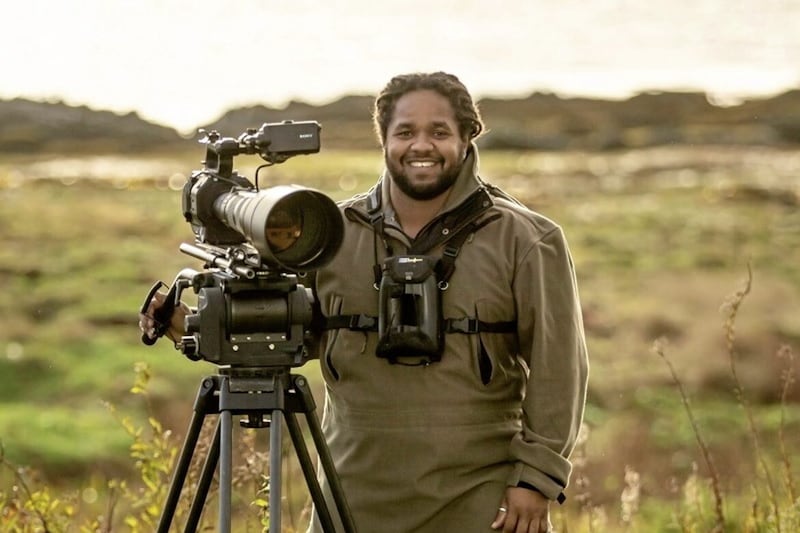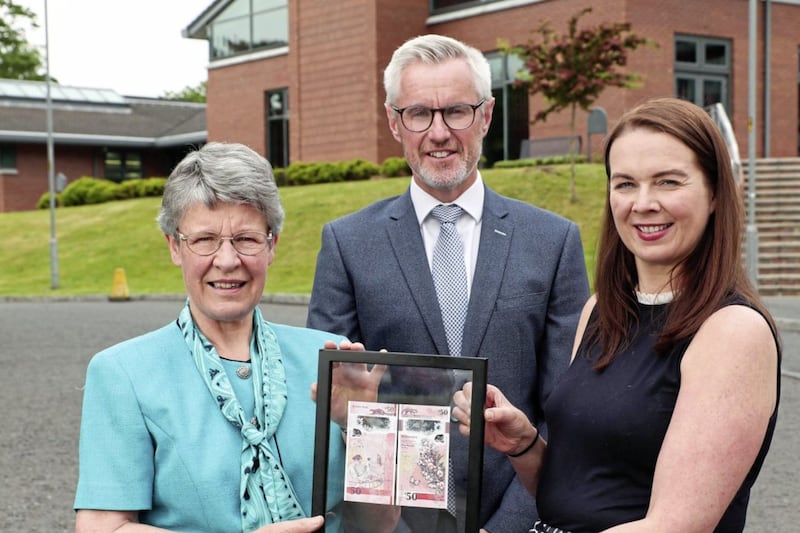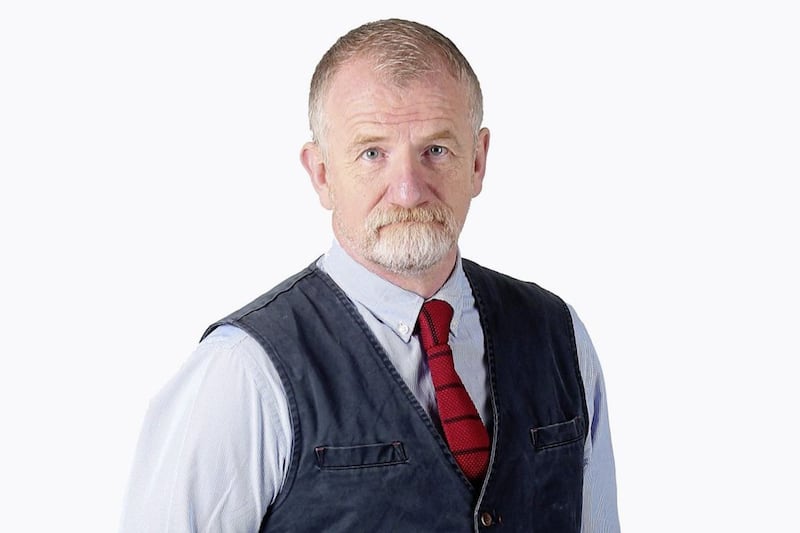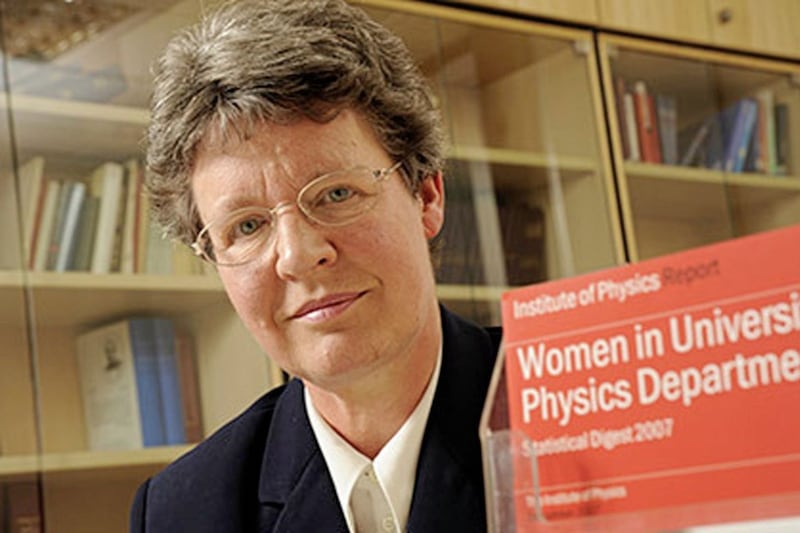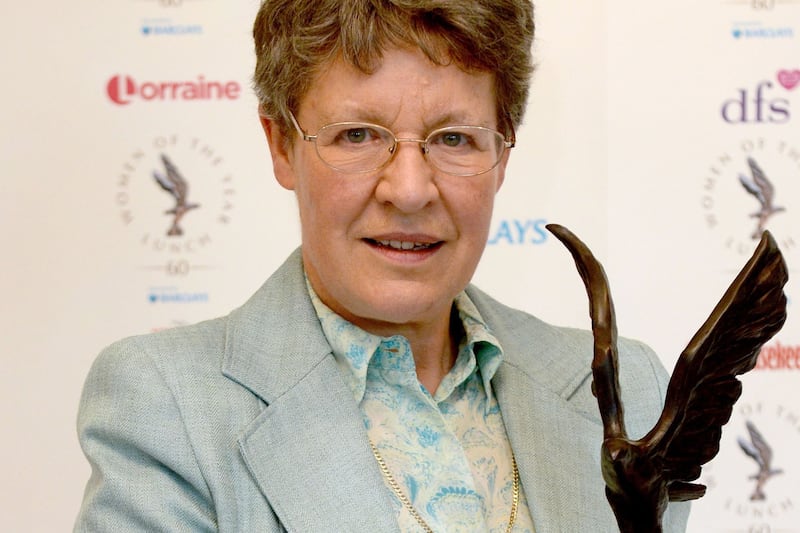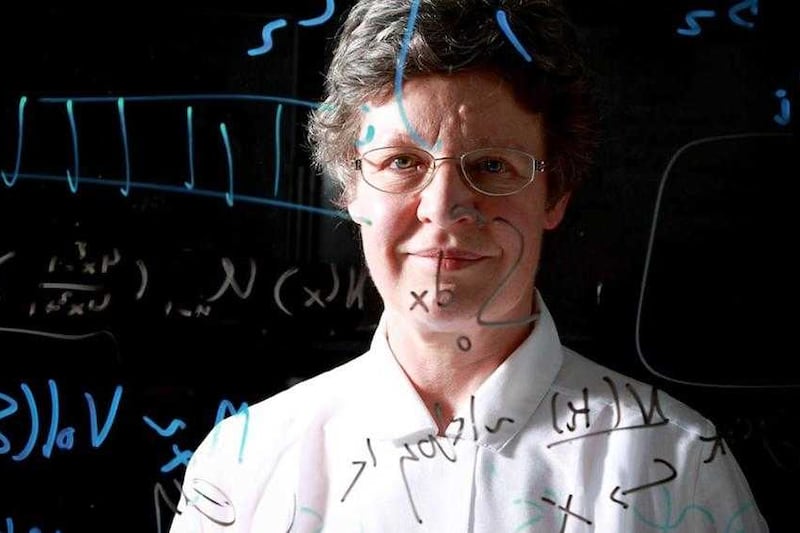GO mbeannaí Dia daoibh agus bhur gcéad fáilte isteach chuig The Bluffer’s Guide to Irish - the space edition.
Watching the huge moon over Derry last Friday, cuireadh i gcuimhne dom - I was reminded of a blog I wrote five years about a Belfast-born réaltfhisiceoir - astrophysicist, Joycelyn Bell Burnell after seeing a programme about her on the BBC.
“We are stardust, we are golden …” sang Joni Mitchell. Little did I think the line from the Joni Mitchell song about Woodstock could be taken literally! We daoine - humans are actually all made up of réaltaí - stars.
I’d heard an teoiric - the theory before, a TED lecture probably, but the aptly titled Beautiful Minds series Bell Burnell described how we and the universe are made of the same stuff.
“The kind of chemical elements you find inside the human body, hidrigin - hydrogen and ocsaigin - oxygen in the water, carbón- carbon in our tissues, cailciam - calcium in our bones, iarann - iron in our bloodstream, they’ve come basically from the earth because that’s where the plants got them from. An domhan - the earth and an ghrian - the sun, because they formed at much the same time, got these elements from preceding exploding stars. The material goes through a stellar cycle, explodes, gets incorporated in the sun and the earth and into us. And when we die, na hadaimh - the atoms will get returned to the earth.
“We are ultimately and intimately, children of the stars. We are made of star stuff. So when we look at the night sky, we are looking at the environment we came from, that the atoms from which we are made come from, na fréamhacha - the roots of our being and that’s why I find astronomy so fascinating.”
You’d think that an in depth knowledge of astronomy – the fact that humans are made of cosmic materials, knowing how galaxies are formed, change and die, how the universe behaves – you’d think that Bell Burnell would be a card-carrying atheist, but she is in fact a practising ball de Chumann na gCarad - Quaker.
There is a revelatory interview which Joan Bakewell did with her in which she describes her scientific work and a creidimh - her beliefs which has disappeared from the internet.
Jocelyn Bell Burnell was one of the people who discovered pulsáir - pulars, bodies in the sky which “emit comharthaí raidió - radio signals in short, very evenly spaced bursts, or pulses. “
Rinneadh neamart inti - she was overlooked for the Nobel Prize for Physics – the first time the award went to astronomers – when it was given to her male superiors, Antony Hewish and Martin Ryle, even though she was the first to observe and precisely analyse the pulsars. True to form, Jocelyn was gracefully philosophical about it all.
Another thing I love about the Belfast woman is that the failed her 11+!
You can find out more about Jocelyn in a series of BBC clips which are available at url.ie/z71h,
cuireadh i gcuimhne dom (keroo i givnya doo) - I was reminded
réaltfhisiceoir (rayltisicore) - astrophysicist
daoine (deenee) - humans
réaltaí (rayltee) - stars
an teoiric (un choreick) - the theory
hidrigin (hidrigin) - hydrogen
ocsaigin (oxagin) - oxygen
carbón (carbawn) - carbon
cailciam (cailkeeam) - calcium
iarann (eeraan) - iron
an domhan (un dowan) - the earth
an ghrian (un yreean) - the sun
na hadaimh (ne hadiv)- the atoms
na fréamhacha (ne frayoowaha) - the roots
ball de Chumann na gCarad (baal de khuman ne garad) - a Quaker
a creidimh (a credgiv) - her beliefs
comharthaí raidió (corehee raadeeo) - radio signals
rinneadh neamart inti (rinyoo nyamart inchee) - she was overlooked
